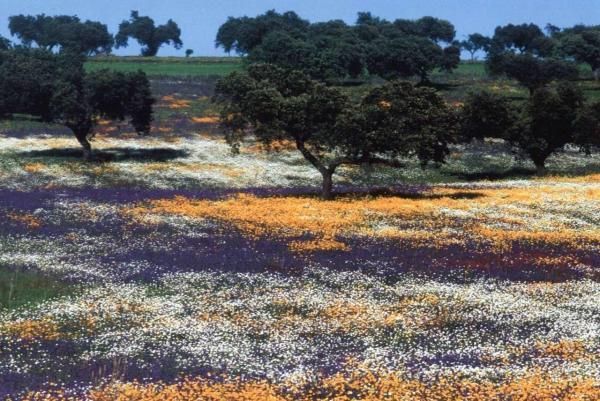Biodiversidad, Ecología y Evolución
Departamento


Universidad de Alcalá
Alcalá de Henares, EspañaPublicaciones en colaboración con investigadores/as de Universidad de Alcalá (210)
2024
-
Analysis of subcellular energy metabolism in five Lacertidae lizards across varied environmental conditions
Comparative Biochemistry and Physiology -Part A : Molecular and Integrative Physiology, Vol. 297
-
Color morphs of the fire salamander are discriminated at night by conspecifics and predators
Journal of Zoology, Vol. 322, Núm. 2, pp. 141-155
-
Covariation between the shape and mineralized tissues of the rib cross section in Homo sapiens, Pan troglodytes and Sts 14
American Journal of Biological Anthropology, Vol. 183, Núm. 1, pp. 157-164
-
Die-hard seedlings. A global meta-analysis on the factors determining the effectiveness of drought hardening on growth and survival of forest plantations
Forest Ecology and Management, Vol. 572
-
Diversity and biogeographical patterns in the diet of the culpeo in South America
Ecology and Evolution, Vol. 14, Núm. 8
-
Do sexual differences in life strategies make male lizards more susceptible to parasite infection?
Journal of Animal Ecology
-
Elevation affects both the occurrence of ungulate browsing and its effect on tree seedling growth for four major tree species in European mountain forests
Annals of Forest Science, Vol. 81, Núm. 1
-
Environmental factors influence cross-talk between a heat shock protein and an oxidative stress protein modification in the lizard Gallotia galloti
PLoS ONE, Vol. 19, Núm. 3 March
-
Forest disturbance regimes and trends in continental Spain (1985–2023) using dense landsat time series
Environmental Research, Vol. 262
-
Integrating Networking, Artificial Intelligence, and Plant Occurrence Mapping in Botanical Learning: An Evaluation of the Use of iNaturalist in a University Arboretum
Lecture Notes in Educational Technology (Springer Science and Business Media Deutschland GmbH), pp. 285-295
-
Lizard host abundances and climatic factors explain phylogenetic diversity and prevalence of blood parasites on an oceanic island
Molecular Ecology, Vol. 33, Núm. 5
-
Positive feedbacks and alternative stable states in forest leaf types
Nature Communications, Vol. 15, Núm. 1
-
Recent increase in tree damage and mortality and their spatial dependence on drought intensity in Mediterranean forests
Landscape Ecology, Vol. 39, Núm. 3
-
Root traits vary as much as leaf traits and have consistent phenotypic plasticity among 14 populations of a globally widespread herb
Functional Ecology, Vol. 38, Núm. 4, pp. 926-941
-
Seasonal changes in color patches and parasite load of male torquate lizards (Sceloporus torquatus)
Behavioral Ecology and Sociobiology, Vol. 78, Núm. 2
-
Spatial phenotypic variability is higher between island populations than between mainland populations worldwide
Ecography, Vol. 2024, Núm. 1
-
Three yellow patches differently correlate with escape behaviour, morphological traits, leukocytes, parasites, and hormones in a lizard species
Behavioral Ecology and Sociobiology, Vol. 78, Núm. 9
2023
-
A Global Review on Innovative, Sustainable, and Effective Materials Composing Growing Media for Forest Seedling Production
Current Forestry Reports, Vol. 9, Núm. 6, pp. 413-428
-
Avian regulation of crop and forest pests, a meta-analysis
Pest Management Science, Vol. 79, Núm. 7, pp. 2380-2389
-
Biodiversity, biogeography, and connectivity of polychaetes in the world's largest marine minerals exploration frontier
Diversity and Distributions, Vol. 29, Núm. 6, pp. 727-747